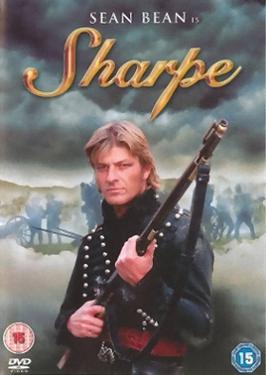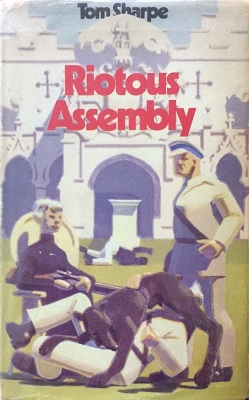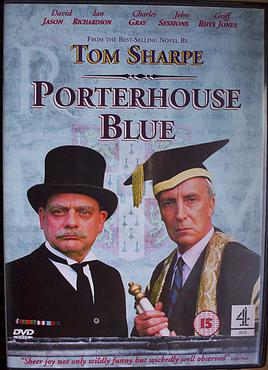
Peterhouse is the oldest constituent college of the University of Cambridge in England, founded in 1284 by Hugh de Balsham, Bishop of Ely. Peterhouse has around 300 undergraduate and 175 graduate students, and 54 fellows.

Selwyn College, Cambridge is a constituent college of the University of Cambridge. The college was founded in 1882 by the Selwyn Memorial Committee in memory of George Augustus Selwyn (1809–1878), the first Bishop of New Zealand (1841–1868), and subsequently Bishop of Lichfield (1868–1878). Its main buildings consist of three courts built of stone and brick. There are several secondary buildings, including adjacent townhouses and lodges serving as student hostels on Grange Road, West Road and Sidgwick Avenue. The college has some 60 fellows and 110 non-academic staff.

Grantchester is a village and civil parish on the River Cam or Granta in South Cambridgeshire, England. It lies about two miles (3 km) south of Cambridge.

Corpus Christi College is a constituent college of the University of Cambridge. From the late 14th century to the early 19th century it was also commonly known as St Benet's College.

Sir Malcolm Stanley Bradbury, was an English author and academic.

The University of Edinburgh, the majority of colleges at the universities of Cambridge, Durham and Oxford, as well as newer collegiate universities such as Lancaster University, University of York, and older universities like University of Bristol and St David's College, have members of staff called porters. There is normally a head porter and a team of other porters. Their precise job roles vary from college to college. Oxbridge porters are highly sought after jobs. Porters work in a section of the college called the porters' lodge, at the main entrance.

Ian William Richardson was a British actor from Edinburgh, Scotland. He was best known for his portrayal of machiavellian Tory politician Francis Urquhart in the BBC's House of Cards (1990–1995) television trilogy, as well as the pivotal spy Bill Haydon in Tinker Tailor Soldier Spy (1979). Other notable screen work included a portrayal of Sherlock Holmes in two films, as well as significant roles in Brazil, M. Butterfly, and Dark City.

Sharpe is a British television drama series starring Sean Bean as Richard Sharpe, a fictional British soldier in the Napoleonic Wars, with Irish actor Daragh O'Malley playing his second in command, Patrick Harper. Sharpe and Harper are the heroes of the Sharpe series of novels by Bernard Cornwell; most, though not all, of the episodes are based on the books. Produced by Celtic Films and Picture Palace Films for the ITV network, the series was filmed mainly in Crimea, with recordings of other episodes in Turkey, England, Portugal and Spain. The two final episodes were filmed in Jaipur, India.

Colonel Sebastian Moran is a fictional character in the stories written by Arthur Conan Doyle. An enemy of Sherlock Holmes, he first appears in the 1903 short story "The Adventure of the Empty House". Holmes once described him as "the second most dangerous man in London", the most dangerous being Professor Moriarty, Moran's employer.

Porterhouse Blue is a novel written by Tom Sharpe, first published in 1974. A satirical look at Cambridge life and the struggle between tradition and reform, Porterhouse Blue tells the story of Skullion, the Head Porter of Porterhouse, a fictional college of Cambridge University.

Patrick David Barr was an English actor. In his career spanning over half a century, he appeared in about 144 films and television series.
A campus novel, also known as an academic novel, is a novel whose main action is set in and around the campus of a university. The genre in its current form dates back to the early 1950s. The Groves of Academe by Mary McCarthy, published in 1952, is often quoted as the earliest example, although in Faculty Towers: The Academic Novel and Its Discontents, Elaine Showalter discusses C. P. Snow's The Masters, of the previous year, and several earlier novels have an academic setting and the same characteristics, such as Thomas Hardy's Jude the Obscure of 1894 to 1896; Willa Cather's The Professor's House of 1925; Régis Messac's Smith Conundrum, first published between 1928 and 1931; and Dorothy L. Sayers' Gaudy Night of 1935.
There are a number of popular legends associated with Cambridge University and its 800 year-old history, often recounted by punt guides to tourists while cruising the River Cam. Some are true, some contain elements of truth, and others are somewhat more fabricated. The myths and legends listed below represent a select few of the traditions and stories associated with Cambridge.

Lord Jeremy Pimpole is a fictional character created by author Tom Sharpe, a British novelist. The character of Lord Pimpole is first mentioned in Porterhouse Blue (1974), set in the fictitious Porterhouse College in Cambridge. Pimpole went up to Porterhouse as a student in 1959.

Skullion is a central character in Porterhouse Blue (1974) and Grantchester Grind (1995), two novels about life in the fictitious Porterhouse College at Cambridge by British novelist Tom Sharpe. For centuries, Porterhouse College has been renowned for its cuisine, the prowess of its rowers and the low level of its academic achievements. Since the college was founded there have been Skullions at Porterhouse.

Sir Godber Evans is a central character in Porterhouse Blue (1974) and, posthumously, Grantchester Grind (1995), two novels about life in the fictitious Porterhouse College at Cambridge by British novelist Tom Sharpe. For centuries, Porterhouse College has been renowned for its cuisine, the prowess of its rowers and the low level of its academic achievements.

Thomas Ridley Sharpe was an English satirical novelist, best known for his Wilt series, as well as Porterhouse Blue and Blott on the Landscape, all three of which were adapted for television.

Riotous Assembly is the debut novel of British comic writer Tom Sharpe, written and originally published in 1971. Set in the fictitious South African town of Piemburg, Riotous Assembly lampoons South African apartheid, and the police who enforced it.

Porterhouse Blue is a 1987 television comedy series adapted by Malcolm Bradbury from the 1974 Tom Sharpe novel of the same name for Channel 4 in four episodes. It starred David Jason as Skullion, Ian Richardson as Sir Godber Evans, Barbara Jefford as his wife Lady Mary, Charles Gray as Sir Cathcart D'Eath, and John Sessions as Zipser. Also appearing were Griff Rhys Jones as Cornelius Carrington, Paula Jacobs as Mrs. Biggs, Bob Goody as Walter, Paul Rogers as the Dean, John Woodnutt as the Senior Tutor, Lockwood West as the Chaplain, Willoughby Goddard as Professor Siblington, Harold Innocent as the Bursar and Ian Wallace as the Praelector.

















